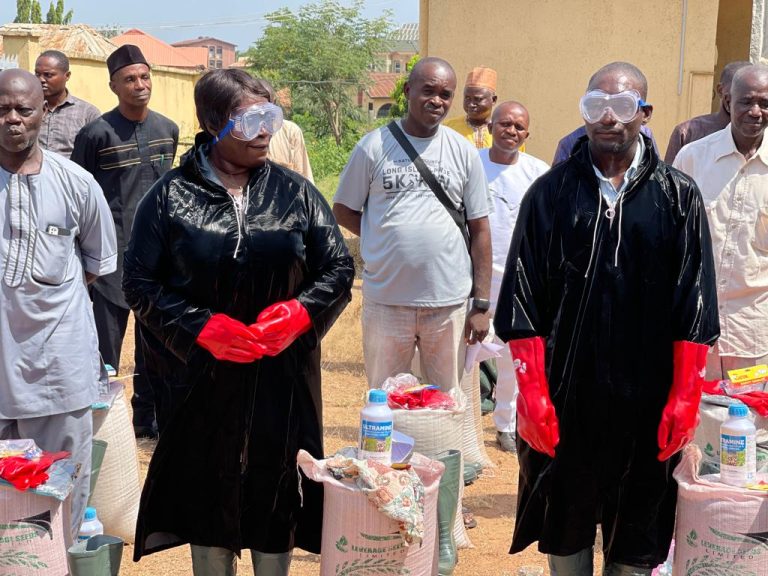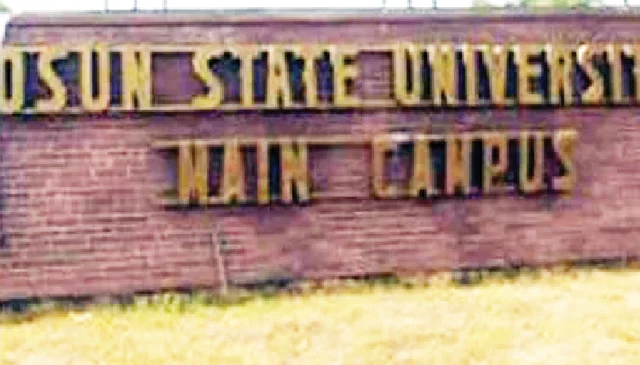The Federal Government said it has supported no fewer than 56 farmers in the North Central zone of Nigeria in rice production.
Dr Mahmud Abubakar, the Minister of Agriculture and Rural Development said this while distributing farm inputs to some of the selected farmers in Ilorin.
Abubakar explained that the purpose of the intervention is to bolster rice production in all parts of the country.
Represented by Mr Usman Bashir, Deputy Director (Rice) Value Chain in the ministry, described rice as a staple crop that is consumed in virtually all homes across the country.
“We therefore cannot afford to rely on the importation of this important food item and be exporting labour outside the country while our citizens can grow and produce it sufficiently.
“By encouraging cultivation, we are empowering our youths and creating jobs through the value chain from seed production, and nursery bed preparation to the last farm operation in the field which involves so many actors along the value chain.
“It equally does not stop at production, processors at different stages of parboiling, de-stoning, polishing and grading are equally engaged in line with this administration’s agenda to make Nigeria self-sufficient in rice production and for export.
“Against this backdrop, this administration is doing all it can within the limited resources and challenges of our time in the post-COVID-19 era to encourage Nigerians to grow more food amidst natural disasters, in the past few years,” he said.
According to Abubakar, the ministry has produced and distributed high-quality Early Generation Seeds (AGS) through the National Cereals Research Institute (NCRI) to produce more certified seeds for distribution to farmers at the grassroots to encourage community seed production.
“We are also producing and distributing Flood Tolerant Certified seeds of FARO 66 and 67 to farmers along the riverine areas of Niger, Kogi and Benue States to mitigate the effect of flood and other natural disasters as witnessed recently.
“The Ministry provides farm equipment in form of power tillers, transplanters, rice reapers, threshers and other simple farm tools to smallholder farmers in different locations at subsidised rates.
“There is also an upgrade in the milling process. New rice mills are springing up in the process of reestablishing integrated rice mills in strategic rice production clusters,” the minister said.
In his opening remarks, Dr Aliyu Kabiru, the State Director FMARD, said rice is a major staple food in Nigeria and since the ban on the importation, the rice value chain has developed tremendously.
“But we can all testify to the fact that the most important item in the value chain is the paddy. Due to several factors, the paddy is still relatively quite expensive.
“I am as excited as I believe you all are to be here today to learn how best or what better ways to produce rice.
“In addition to learning about the Good Agronomic Practices (GAP) in rice production, our capacity will also be built on safe/effective ways of using Agrochemicals to increase rice production,” Kabiru said.
Some of the beneficiaries in their responses commended the federal government for the opportunity given to them.
They said the opportunity has opened the door for them to learn a new way of rice production. CONTINUE READING………………………….
THIS IS FOR YOU🤳🏾👨🏼💻
For your Surprise birthday wishes, Business Advert Placement, Publicity Online and offline, Press Release, Social Media Management, For Your Content Writer Plug, Personality Promotion, Special Report, Featured Story, Conference, And Interviews – CONTACT US @VAM on WhatsApp/Call📞@ 08072633727 📲




